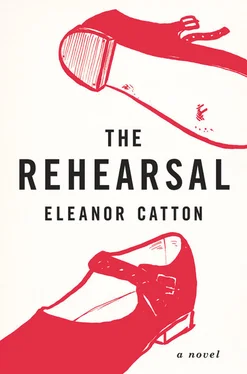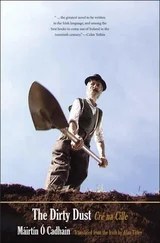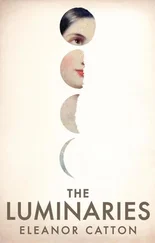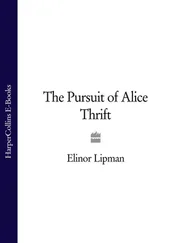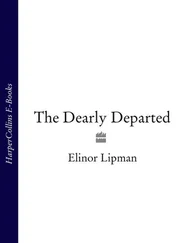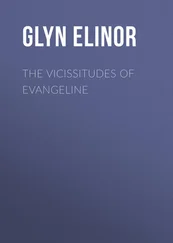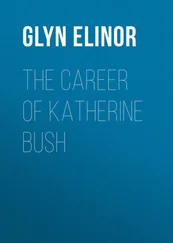“But wasn’t the girl a seventh former? So most of her friends would have been eighteen anyway.”
“It’s what I heard,” the boy said, shrugging.
“How did they get caught in the end?” somebody asked.
“I heard it was another teacher,” the boy said. “The guy had been dating someone else on staff, and then they broke up and she was the one who found him with the girl. That’s what Polly said.”
“I thought it was her friends,” one of the girls said. “They caught on and went to the principal and dobbed her in.”
“I heard that it wasn’t just the one girl who was abused,” somebody said, “it was a whole bunch of them—he was playing them all at the same time. She was just the one who got caught.”
“Do we know whether anything actually happened?” one of the girls put in. “What if nothing actually happened between her and the teacher at all?”
“They had evidence. Like there were some of her clothes at his house. And there was a toothbrush.”
“A toothbrush doesn’t mean rape ,” the girl said, with a sharp little laugh. “A toothbrush means the opposite of rape. It doesn’t even mean a one-night stand. A toothbrush means you’ve got foresight. It’s like if they found pajamas at his house, little girly flannel pajamas, pastel pink with a pattern of clouds. It can’t be evidence . It’s an investment. A toothbrush is an investment.”
There was a silence as they all digested this new concept.
Then one of the boys said, “Wasn’t he like sixty?”
“He wasn’t that old. There was a photo in the paper last week. He’s got brown hair.”
“So we don’t really know very much at all,” Felix said crossly, swiping his fringe away from his face. He was feeling the helpless boiling irritation of an officious person struggling to control a group too large and original for him. He uncapped his pen and wrote ISSUES at the top of his butcher’s sheet.
“We need to make really awesome use of the card itself,” one of the girls said. “Playing cards need to be an integral part of the performance, not just some little byproduct scene that’s tacked on.”
“I think that’s a given,” Felix said. “Well, let’s talk about the card then, and the different ways we could use it.” He underlined the word ISSUES, recapped his pen with a careful snap and looked expectantly at them all.
“Just the one card, or the whole pack?”
“I reckon the whole pack,” somebody said. “It’s a really great aesthetic for costuming and we can use it to shape the play kind of, like if we have four acts, each with a suit name, or thirteen scenes that each have a card name in a particular suit.”
“That’s a good idea.”
“Yeah! We can dress up like the court cards, with their weapons and stuff. Don’t they all have weapons?”
“What if we made up a game ? A card game that we could use as the focus of the play. If you draw a red card you will be attracted to women. If you draw a black card you will be attracted to men.”
“Yeah, and every individual card could stand for some sort of particular—I don’t know. Some sort of particular habit or trait or something. Something to do with sexuality or whatever.”
“If you draw His Nobs, you leave before the morning?” one of the boys said, and everyone laughed.
“What’s His Nobs?”
“One of the jacks in cribbage.”
“Hang on,” said Felix, scribbling. “We’re going too fast.”
“We’re going fine,” one of the boys said. “You’re just writing too slow.”
Felix felt his authority begin to ebb. He scowled and wished he had appointed a scribe.
“What if we make the whole play a kind of fantasy, like set in a fantasy world or whatever, where as soon as you turn a certain age you have to draw a card?”
“You get sent to a fortune-teller or something—”
“Like a tarot reader.”
“Yeah! It’s like a coming-of-age ritual thing. A rite of passage.”
“The card becomes like your identity card. You keep it with you always.”
“You can’t show it to anybody.”
“So queens might mean drag or something, and if you drew a queen you’d have to take up drag.”
“Queen—like drag queen!”
“That’s what I meant.”
“Is that what we really believe, though?” Stanley said. “Do we really believe it’s like that—that your identity is dealt out to you, given to you the moment you grow up, and from then on it becomes your—your motif or something? Like a badge?”
“Yeah,” the first boy said. “Do you not believe that?”
Stanley opened his mouth but then closed it again. He wasn’t sure.
“But doesn’t that mean you’d have one card for the rest of your life?” somebody said.
“Yes,” the emphatic boy said. “Unless you gamble it away. In a high-stakes game of chance. In a deadly game of chance in an underground bar, where you run the risk of ending up with nothing.”
“We could do that really well.”
“It would dramatize really well.”
“Really steam-punk.”
“I reckon.”
“Anyway,” one of the girls said crossly, “it doesn’t matter what we actually believe. It’s a great idea. The Head of Acting would go nuts for it. It’s just the sort of crossover thing he loves.”
“What do you mean, crossover?”
“With the teacher–student thing. Using stories from the media. Did anyone see the production a few years back about the witch hunt, and they had actors in disguise all through the audience pretending to be members of the public?”
“Yeah, I saw that.”
“Until you didn’t know who was acting and who wasn’t, all around you. It was really scary, actually. The season totally sold out. They had to extend by a week.”
There was a small hush as they all imagined extending their opening season by a week. Felix had stopped writing and was looking around with his pen limp in his hand.
“I like the Abbey Grange idea,” someone said.
“So do I.”
“What are we going off, though? Just a few articles in a local paper? That isn’t enough.”
“We’ll have to research it. We’ll have to find out more.”
“Because at the end of it everything collapses,” one of the girls said. “For the girl, the victim, the one who was abused. It all comes down around her like a castle of cards.”
July
The blinds were open on the corridor side when Stanley and the girl passed, carrying their costumes down to the art department. They heard the noise and turned their heads, and then they stopped and moved closer to the glass, to watch.
A boy was howling, squirming and bent almost double with his hands at his groin. The Head of Voice was crouched over him, leaning right over with her feet planted sturdy and apart and her cheek against his, and her plump arms around him, clasping him tight. She was muttering urgently and inaudibly into his ear as he howled. His howl was unpitched and irregular and ever-changing, morphing into a guttural hum, a throaty kind of gurgle, even a bat-shriek that was too high and whispery to be heard. He appeared to be trying to twist away from the Head of Voice but she was clamped tightly to his back and the boy could only writhe and struggle. His eyes were closed.
“What’s happening to him?” Stanley whispered.
“Remedial Voice,” the girl whispered back. “He’s working through a lot of stuff from when he was a kid, I think. Really bad stuff that’s all locked inside.”
The boy was slack faced and open mouthed and his expression showed no pain, but the noise he was making was raw and brutish and full of hurt. It was frightening, this terrible noise coming out of this boy’s calm unworried throat. If it weren’t for the leaping of his Adam’s apple, Stanley would have thought the noise recorded.
Читать дальше
